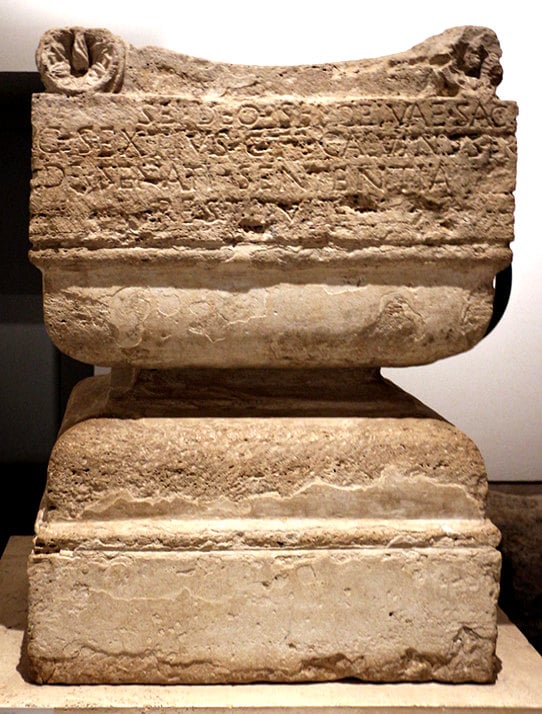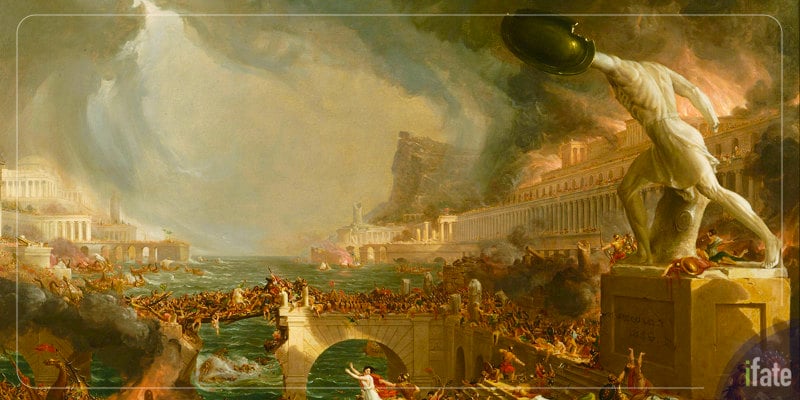Of all the deities, demigods and spirits of ancient Rome, there’s one mysterious deity that stands out as being totally different from the rest: Aius Locutius, or just “Aius” for short.
If you’re a fan of ancient mythology, keep reading. Most casual fans of Greek and Roman mythology don’t know the story of Aius — but they probably should.
Not only is the Aius story part paranormal event, part history lesson, and part mystery, but it’s a tale like no other in the Roman canon.
A Paranormal Event in Ancient Rome
As the story goes, about 400 years before the birth of Christ, a strange and mysterious event happened one night in ancient Rome:
A booming, godlike voice rang out from Vesta’s sacred grove on the Palantine Hill. The thundering, otherworldly voice echoed across the entire city, shaking buildings and rustling trees. More ominously, the strange voice issued a warning: Fortify your walls, doors and defenses now!
So what did the Romans do?
Pretty much, nothing.
As history tells us, this foreboding warning was mostly ignored by the Romans at the time. While the voice may have been heard by nearly everyone, few apparently heeded its advice. As it turns out, they probably should have.
Why? Because scant days after this strange paranormal event, Rome was besieged by marauding Gauls and nearly destroyed.
To make a long story short, the Romans eventually repelled the Gallic invasion, but at a great cost to themselves: Much of the city was razed, and a devastating toll of human life was taken.
Aius: The deity of protection and foreknowledge
In the years following the invasion by the Gauls, the legend of the mysterious voice from Vesta’s grove grew.
What was that strange voice? Where had this disembodied spirit come from? Would it offer the same warning again next time?
A permanent stone shrine to Aius, who the Romans considered to be a deity, was erected on the Palantine hill near the spot where they felt the voice had emanated from.

The shrine to Aius was erected to atone for ignoring the advice of the spirit, and to pray for foreknowledge.
Aius Locutius (which translates to “Aius the Speaker“) became revered as the Roman deity of “protection and foreknowledge“, and regular offerings were made at the shrine to gain the favor of this angelic advisor and protector.
What makes Aius different?
Among the “pantheon” of Roman deities, what makes Aius so different is that the deity was never seen by anyone. This mysterious invisibility is unusual in Roman mythology where “visitations”, “sightings” and dream appearances are regular things. In fact, Aius is the only non-corporeal deity to ever be mentioned in the entire Roman canon.
While other Roman deities are represented by countless statues, mosaics and frescoes, Aius is only remembered with a single famous altar. Why? Because Aius is just a voice. No guesses were ever made as to Aius’ age, size, gender or stature. Aius simply represents foreknowledge and advance warning — and the granting of important information before it’s needed.
If the Romans had only heeded the advice of this mysterious spirit, Rome might have been spared one of its most painful chapters.



